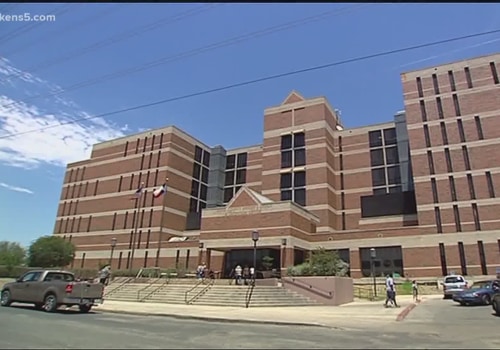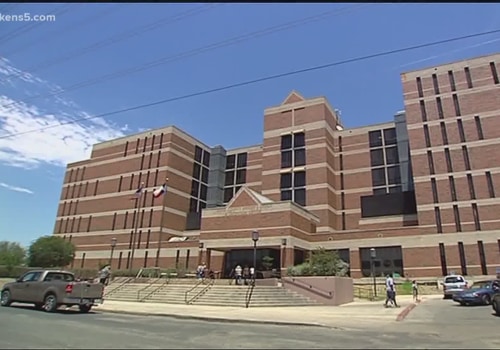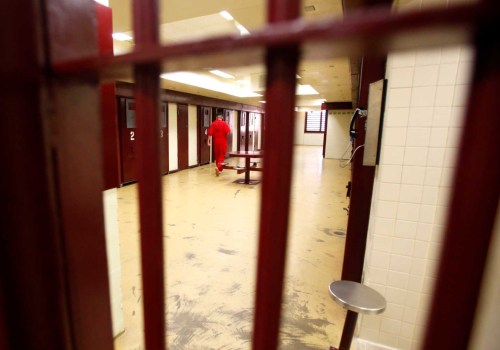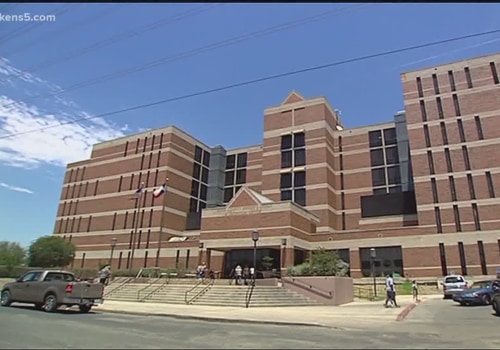Bexar County, situated in the heart of Texas, is known for its rich history, vibrant culture, and sprawling landscapes. Yet, beneath its surface lies another facet of its existence — the complex and often misunderstood world of correctional facilities. These institutions, designed to safeguard society, play a critical role in the justice system. However, they also raise important questions about rehabilitation, social responsibility, and the impact on individuals within their walls. This article opens the door to an insightful exploration of the correctional facilities within Bexar County.
Types Of Correctional Facilities In Bexar County
Bexar County, situated in Texas, houses a variety of correctional facilities aimed at serving different purposes within the criminal justice system. These correctional facilities play distinct roles in maintaining public safety, carrying out sentences, and addressing the needs of inmates. Here are the primary types of correctional facilities you can find in Bexar County.
County Jails
These facilities serve as temporary housing for individuals awaiting trial and those with shorter sentences, typically less than a year.
State Prisons
While Bexar County doesn't host state prisons, it falls under the Texas Department of Criminal Justice (TDCJ) system. State prisons are where individuals convicted of more serious offenses serve long sentences, often exceeding a year.
Federal Detention Centers
San Antonio, within Bexar County, houses several federal detention centers, detaining individuals under federal immigration authorities or awaiting federal trial.
Juvenile Detention Centers
Bexar County operates these facilities for young offenders under 18, awaiting court proceedings or serving juvenile sentences. They focus on rehabilitation and offer educational and counseling services.
Reentry and Rehabilitation Centers
These facilities prepare inmates for successful reintegration into society, offering rehabilitation programs, educational opportunities, and job training.
Community Corrections Centers
Geared towards inmates nearing the end of their sentences, these centers provide a structured environment for gradual reintegration into society under supervision.
Probation and Parole Offices
While not traditional correctional facilities, these offices play a vital role in monitoring individuals on probation or parole, ensuring compliance with court orders, and facilitating successful reintegration.
Inside Bexar County's Correctional Facilities
These facilities are designed to serve several critical purposes within the criminal justice system, and understanding what goes on inside them is essential for comprehending their role in society. Here's a glimpse inside Bexar County's correctional facilities.
Intake and Processing
Upon arrival, individuals undergo security checks and health screenings and are assigned housing based on classification. Personal belongings are cataloged.
Living Conditions
Inmates typically reside in cells or dormitory-style units equipped with basic amenities. They follow structured schedules, including meal times, recreation, and visitation.
Security Measures
Trained correctional officers oversee inmates, utilizing surveillance systems and emergency protocols to maintain security.
Programs and Services
Facilities offer rehabilitation programs, vocational training, mental health services, and religious programs to equip inmates with skills and support for reintegration.
Healthcare
Medical and mental health services are provided on-site, with access to specialized care when needed.
Visitation and Communication
Inmates can maintain connections through visitation and communication services, including phone calls and written correspondence.
Recreation and Exercise
Inmates have access to areas for physical activity, sports, and leisure to support their well-being.
Counseling and Rehabilitation
Behavioral and mental health counseling are available, addressing substance abuse and mental health needs.
Work Assignments
Inmates may participate in work assignments such as kitchen duty or janitorial work, fostering responsibility and skill development.
Release and Reentry Planning
Case managers assist inmates in creating post-release plans, including housing and job placement, to support a successful transition back into society.
Bexar County's correctional facilities are not the only places where comprehensive care is essential. Just as individuals within the correctional system require support and attention to their well-being, residents outside these facilities also seek trusted providers like Henwood Family Dentistry for their dental health needs.
Challenges And Complexities Of Bexar County's Correctional Facilities
The operation of Bexar County's correctional facilities presents a multitude of challenges and complexities, reflecting broader issues within the criminal justice system. These facilities, which house individuals at various stages of the justice process, encounter a range of difficulties that impact both staff and inmates.
Overcrowding
Bexar County's correctional facilities often operate beyond their intended capacity, resulting in strained resources, compromised safety, and inadequate living conditions for inmates.
Mental Health
A substantial portion of the inmate population grapples with mental health issues, challenging facilities to provide appropriate care and interventions, often in an environment ill-suited for comprehensive mental health treatment.
Substance Abuse
Substance abuse is prevalent among inmates, necessitating withdrawal management, addiction treatment, and prevention of drug-related incidents, all while maintaining security.
Staffing Shortages
The persistent shortage of correctional staff places an additional burden on existing personnel, leading to overwork and limited supervision, which can impact safety within the facilities.
Security Threats
Inmates may pose security threats to themselves, others, and staff, necessitating vigilant management to ensure safety without compromising inmates' rights.
Recidivism
Reducing recidivism rates is a long-term objective, requiring facilities to provide inmates with the necessary resources and support for successful reintegration into society.
Budget Constraints
Operating within tight budgets often restricts resources available for staff training, rehabilitation programs, and facility maintenance, which can affect overall effectiveness.
Community Engagement
Engaging with the community to garner support for rehabilitation efforts and improve reintegration opportunities for inmates is an ongoing challenge that facilities actively address.
Legal and Policy Changes
Frequent shifts in laws and policies within the criminal justice system create uncertainty and necessitate adjustments in facility operations and protocols.
Inmate Safety
Ensuring the safety of all inmates, particularly vulnerable populations, remains a paramount concern, with facilities addressing issues related to violence, abuse, and harassment as part of their responsibilities.
Rehabilitation And Reintegration In Bexar County's Correctional Facilities
While these facilities play a vital role in maintaining public safety and administering justice, they also recognize the importance of preparing inmates for a successful return to society. Here's an insight into the rehabilitation and reintegration initiatives within Bexar County's correctional facilities.
Education and Vocational Programs
Bexar County's correctional facilities offer educational programs, including GED courses and vocational training. Inmates have the opportunity to acquire valuable skills, increasing their employability upon release.
Substance Abuse Counseling
Recognizing the prevalence of substance abuse among inmates, facilities provide counseling and treatment programs to address addiction issues. These programs aim to reduce the likelihood of reoffending due to drug-related offenses.
Mental Health Services
Many inmates struggle with mental health conditions. Correctional facilities in Bexar County offer mental health services, including counseling and therapy, to address these issues and provide necessary support.
Religious and Spiritual Programs
Facilities acknowledge the role of faith and spirituality in inmate rehabilitation. They offer religious programs and counseling to cater to the diverse spiritual needs of the inmate population.
Life Skills Training
Inmates often lack essential life skills necessary for successful reintegration. Correctional facilities provide life skills training, covering topics such as financial literacy, parenting, and conflict resolution.
Pre-Release Planning
As inmates approach their release dates, case managers work with them to create comprehensive pre-release plans. These plans may include securing housing, finding employment, and accessing community resources.
Work Release Programs
Some inmates participate in work release programs, allowing them to work in the community while serving their sentences. This experience helps them develop job skills and maintain connections to the workforce.
Community Partnerships
Collaboration with community organizations, nonprofits, and employers is crucial for successful reintegration. Facilities in Bexar County foster partnerships to facilitate inmates' access to support networks and employment opportunities.
Family and Social Support
Recognizing the importance of maintaining family connections, facilities provide visitation and communication opportunities. Family support can significantly contribute to an inmate's successful reintegration.
Post-Release Supervision
For some inmates, post-release supervision or parole is part of their reintegration plan. Parole officers monitor and support individuals as they transition back into the community, ensuring compliance with court orders.
Recidivism Reduction
Bexar County's correctional facilities are committed to reducing recidivism rates. Effective rehabilitation and reintegration efforts aim to break the cycle of reoffending and promote long-term success.
Community Engagement
Facilities actively engage with the community to build understanding and support for rehabilitation and reintegration efforts. This collaboration fosters a more inclusive and rehabilitative approach to justice.
Learn More About Correctional Facilities In Bexar County
In examining Bexar County's correctional facilities, it becomes evident that these institutions are far more than mere incarcerating spaces; they are complex microcosms reflecting the multifaceted challenges and responsibilities of the criminal justice system. These facilities grapple with issues of overcrowding, mental health, and substance abuse, all while striving to provide rehabilitation, healthcare, and support for successful reintegration into society. The commitment to balancing security with rehabilitation and engaging with the community underscores the progressive approach taken within Bexar County's correctional facilities.



